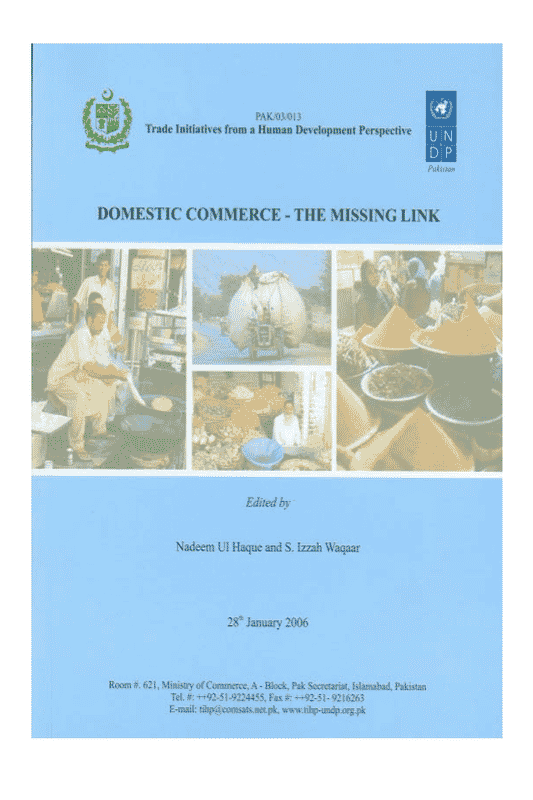Domestic Commerce – The Missing Link
Participants in the workshops noted the following factors as constraining domestic commerce: → Lack of educated and trained human resource. Education system not delivering the kind of manpower required. → Lack of physical infrastructure. Poor road network. Limited, expensive and uncertain electricity. → Frequent changes in Government policies. → Fundamentalists can impact commerce without threat of state reprisal. → Lack of copy right protection. → Inadequate property rights. Acquiring land very difficult, uncertain and time consuming. → Inequitable tax laws and unnecessary tax burdens. → Problems in securing financing and credit. → Quality control and inadequate domestic standards. → Poor quality of IT infrastructure limits management control for extensive branching. → Weak contract enforcement hinders supply chain development and delegation to middle management. → Outmoded and non-professional urban zoning very unfriendly to commercial development. → High commercialization fees a tax on commercial development. → Difficult land acquisition procedures for commercial purposes. → No zoning for warehousing and distribution with the result that warehousing continues to be done in dilapidated old housing. → State favors industry with industrial parks, no commercial or retail parks. → Government controls large tracts of prime commercial land inhibiting city center development. This land must be privatized. → Retail zoning in housing projects is too small to allow shopping mall and large warehousing development. → No city centers are allowed to develop as dense mixed use areas. → No tourism to support retail development. → No hotel infrastructure to allow a distribution network to develop. → Poor system of tracing and penalizing smugglers and fraudulent parties. → Lack of cultural events to present a softer picture of our society.




